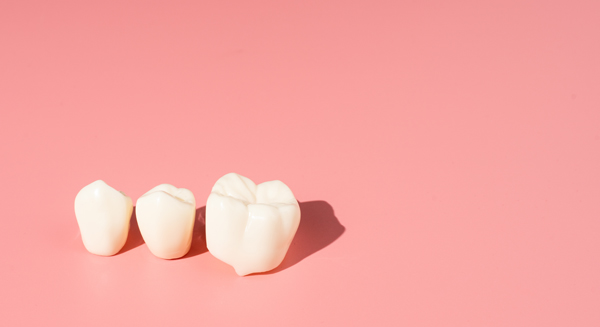What a Dental Restoration Can Do for Your Smile

Dental Restorations is a type of treatment used to improve teeth that are in bad shape due to injury, decay, or genetic imperfections. There are a number of dental restorations that patients can consider, however, it is ultimately up to a general dentist to make a recommendation and treatment plan. Most procedures aim to make improvements to a patient's smile. Keep reading to learn more about dental restoration.
Fixing your smile with a dental restoration
Outlined below are a few things that a dental restoration can do for your smile. This information can be helpful to review when looking into different treatment options.
Damage repair
Accidents and injuries occur, which can leave the teeth cracked, chipped, or broken. Dental restorations of any kind can be used to repair damaged teeth. When damaged teeth are repaired with a dental restoration, the patient's smile is much more likely to improve.
Correcting imperfections
Some people have imperfections in their teeth, which are unpreventable. However, with a dental restoration, imperfections can be addressed and even corrected. Imperfections may include divots, shorter teeth, thinner teeth, teeth that do not 100% align with their surrounding teeth, or misshapen teeth, all of which are treatable with dental restorations, such as crowns or veneers. In some scenarios, dental bonding can also be used.
Improving oral health
Dental restorations can also improve oral health in patients who have unhealthy teeth, thus improving their smile. When teeth are unhealthy, it often shows, meaning that they may appear discolored or brittle. Things like cavities, gum disease, or abscesses can leave one's smile looking unhealthy. Thankfully, dental restorations can be used to address these concerns. Teeth that are unhealthy respond well to dental fillings and crowns as they both involve the removal of infected parts.
Other things to know about dental restorations
The most common dental restorations include dental fillings, crowns, veneers, and composite bonding. Outlined below is a short explanation of each. It can be helpful to understand each dental restoration as it will provide a better understanding of the information above.
- Dental crowns: These cap-like coverings are used to completely seal a molar tooth after the infected tissue has been removed. Crowns are made of gold, ceramic, metal alloy, or composite resin
- Fillings: Dental fillings are made of gold, ceramic, silver amalgam, or composite resin. The chosen material literally fills the tooth once the infected areas have been removed
- Veneers: Thin shells like veneers work well to cover imperfections in the teeth that do not necessarily require the removal of infected areas
- Composite bonding: Dental resin can be used to cover minor chips, cracks, or stains, all of which are typically considered to be cosmetic problems
Ready to get started?
A general dentist is a great resource to utilize when needing to undergo a dental restoration. They can perform an evaluation in order to determine the most appropriate restoration type. Additionally, any questions or concerns regarding the treatment process can be appropriately addressed. Reach out today to find out more or to get scheduled for an appointment.
Request an appointment here:https://muhlenbergdental.comor call Muhlenberg Dental Associates at(610) 844-9825for an appointment in our Reading office.
Check out what others are saying about our dental services on Yelp: Dental Restorations in Reading, PA.
Recent Posts
Losing a tooth can be disconcerting. Thankfully, there are multiple dental restoration options to replace the missing tooth and restore dental functions. Read on to learn about available options. The choice ultimately boils down to the patient's oral condition and preferences. A dentist will recommend the proper treatment following a dental evaluation.The following are common…
A dental restoration can restore, renew and even replace teeth that are in bad shape. They are often used to repair teeth that have been lost, decayed or even slightly damaged from a chip or a crown. However, with all dental restorations, comes the possibility that it may not work, which is why it is…
Dental restorations treatments can be used to repair teeth that have been damaged by tooth decay. Such treatments can also restore the look and functionality of the tooth.Tooth decay is an oral issue that most people have to deal with at some point. There are acids in some of the foods we consume, like citrus…
The increased awareness regarding tooth enamel in the past few decades is all thanks to dentists. People now understand the significance of tooth enamel and its role in maintaining oral health.Tooth enamel forms a protective shell around teeth and gum to help it sustain a number of risks, infections and damages. It is a substance…


